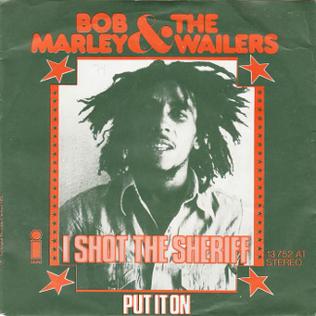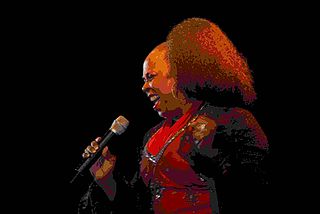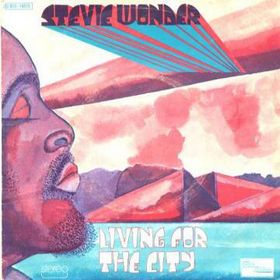
In geometry, the circumference is the perimeter of a circle or ellipse. That is, the circumference would be the arc length of the circle, as if it were opened up and straightened out to a line segment. More generally, the perimeter is the curve length around any closed figure. Circumference may also refer to the circle itself, that is, the locus corresponding to the edge of a disk. The circumference of a sphere is the circumference, or length, of any one of its great circles.
In linear algebra, the rank of a matrix A is the dimension of the vector space generated by its columns. This corresponds to the maximal number of linearly independent columns of A. This, in turn, is identical to the dimension of the vector space spanned by its rows. Rank is thus a measure of the "nondegenerateness" of the system of linear equations and linear transformation encoded by A. There are multiple equivalent definitions of rank. A matrix's rank is one of its most fundamental characteristics.

Subtraction is an arithmetic operation that represents the operation of removing objects from a collection. Subtraction is signified by the minus sign, −. For example, in the adjacent picture, there are 5 − 2 peaches—meaning 5 peaches with 2 taken away, resulting in a total of 3 peaches. Therefore, the difference of 5 and 2 is 3; that is, 5 − 2 = 3. While primarily associated with natural numbers in arithmetic, subtraction can also represent removing or decreasing physical and abstract quantities using different kinds of objects including negative numbers, fractions, irrational numbers, vectors, decimals, functions, and matrices.

KC and the Sunshine Band is an American disco and funk band that was founded in 1973 in Hialeah, Florida. Their best-known songs include the hits "That's the Way ", "(Shake, Shake, Shake) Shake Your Booty", "I'm Your Boogie Man", "Keep It Comin' Love", "Get Down Tonight", "Boogie Shoes", "Please Don't Go" and "Give It Up". The band took its name from lead vocalist Harry Wayne Casey's last name ('KC') and the 'Sunshine Band' from KC's home state of Florida, the Sunshine State. The group has had six top 10 singles, five number one singles and a number two single on the Billboard Hot 100 chart.
Cameo is an American funk band that formed in 1974. Cameo was initially a 14-member group known as the New York City Players; this name was later changed to Cameo.

"I Shot the Sheriff" is a song written by Jamaican reggae musician Bob Marley and released in 1973 by with his band Bob Marley and the Wailers.

The Gap Band was an American R&B and funk band that rose to fame during the 1970s and 1980s. The band consisted of three brothers: Charlie, Ronnie, and Robert Wilson, along with other members; it was named after streets in the historic Greenwood neighborhood in the brothers' hometown of Tulsa, Oklahoma.

Bessie Regina Norris, better known by her stage name Betty Wright, was an American soul and R&B singer, songwriter and background vocalist. Beginning her professional career in the late 1960s as a teenager, Wright rose to fame in the 1970s with hits such as "Clean Up Woman" and "Tonight Is the Night". Wright was also prominent in her use of whistle register.

"Kung Fu Fighting" is a disco song by Jamaican vocalist Carl Douglas, written by Douglas and produced by British-Indian musician Biddu. It was released in 1974 as the first single from his debut album, Kung Fu Fighting and Other Great Love Songs (1974), on the cusp of a chopsocky film craze and rose to the top of the British, Australian, Canadian, and American charts, in addition to reaching the top of the Soul Singles chart. It received a Gold certification from the RIAA in 1974 and popularized disco music. It eventually went on to sell eleven million records worldwide, making it one of the best-selling singles of all time. The song uses the quintessential Oriental riff, a short musical phrase that is used to signify Chinese culture.

Beatrice Melba Hill or Beatrice Melba Smith, known by her stage name Melba Moore, is an American singer and actress.

"Knock on Wood" is a 1966 hit song written by Eddie Floyd and Steve Cropper and originally performed by Floyd. The song has become covered by later artists, most notably Amii Stewart in 1979. Stewart's disco version was the most successful on weekly music charts.

"Boogie On Reggae Woman" is a 1974 funk song by American Motown artist Stevie Wonder, released as the second single from his seventeenth studio album, Fulfillingness' First Finale, issued that same year. Despite the song's title, its style is firmly funk/R&B and neither boogie nor reggae. It continued Wonder's successful Top Ten streak on the pop charts, reaching number three and also spent two weeks at number one on the soul charts. Billboard ranked it as the No. 26 song for 1975. At the 17th Grammy Awards, Stevie Wonder won the Best R&B Vocal Performance, Male for this song.

"Then Came You" is a 1974 song recorded by American soul singer Dionne Warwick and American R&B group The Spinners. It was credited to Dionne Warwicke and the Spinners. The track was written by Sherman Marshall and Phillip T. Pugh, and produced by Thom Bell.

"I'll Be Good to You" is a 1976 hit song by R&B duo the Brothers Johnson. George Johnson, one of the two Johnson brothers in the band, wrote the song after deciding to commit to a relationship with one woman, instead of dating several at a time. While George was recording a demo for the song, family friend Senora Sam came by and added some lyrics. Brothers Johnson producer and mentor Quincy Jones heard the song, liked it, and convinced George to sing lead on the finished track. Released from their debut album, Look Out for #1, it was a top-ten hit on the Billboard Hot Singles Charts, peaking at number three, and a number one song on the Billboard R&B Charts during the summer of 1976. The single was later certified gold by the RIAA.
"My Thang" is a funk song written and recorded by James Brown. Unlike most of his songs, this song was released not as a two-part single, but instead issued with three different B-sides. It spent two weeks at number one on the R&B singles chart - Brown's second #1 in a row, following "The Payback" - and reached No. 29 on the Billboard Hot 100 in July 1974. The song also appeared on Brown's 1974 double album Hell.

"Feel Like Makin' Love" is a song composed by singer-songwriter Eugene McDaniels, and recorded originally by soul singer-songwriter Roberta Flack. The song has been covered by several R&B and jazz artists.

The Four Tops are an American vocal quartet from Detroit who helped to define the city's Motown sound of the 1960s. The group's repertoire has included soul music, R&B, disco, adult contemporary, doo-wop, jazz, and show tunes.

"Living for the City" is a 1973 single by Stevie Wonder from his Innervisions album. It reached number 8 on the Billboard Hot 100 chart and number 1 on the R&B chart. Rolling Stone ranked the song number 104 on their 2004 list of the "500 Greatest Songs of All Time".

"Hi-Jack" is a 1974 r&b and funk disco based song written by Spanish musician Fernando Arbex and originally recorded by his group Barrabás for their album ¡Soltad a Barrabás!. While their version of the song was a huge success in their native Spain, going all the way to Number one over there, the song flopped in America, stalling at just number No. 104 on the Bubbling Under the Billboard Hot 100 Charts in July of 1975. It was later a hit single for jazz flautist Herbie Mann.